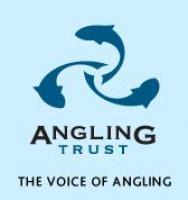
The Angling Trust has written to the BBC to complain about the inadequate coverage of the impact of predation on fisheries in the Springwatch programme about otters.
The full text of the letter is reproduced below.
Dear BBC,
I am writing to complain about your Springwatch programme about otters broadcast on Thursday 20th December. Whilst it was welcome that there was some acknowledgement of the problems that the rapid increase in otter numbers has caused to stillwater fisheries, the issue was limited to a very brief segment of the hour long programme.
It also failed to mention the impact of otters on fish stocks in rivers in many parts of the country and the fact that large numbers of otters were released into the wild in some areas, without any consultation with angling clubs or fisheries. These releases have had severe implications for anglers, angling clubs and fisheries.
It was disappointing that no-one from the BBC contacted the Angling Trust, which is the representative body for all anglers in England, about the programme. If someone had contacted us, we would have been able to explain better the impacts on our member angling clubs and fisheries of captive-bred otters, and their offspring, particularly in light of increased predation from cormorants, over-abstraction, diffuse pollution and barriers to fish migration, all of which reduce the ability of fish populations to withstand predation.
Angling is a major industry and employer, generating £3.5 billion each year and employing 37,000 people. It is also enjoyed by more than 3 million participants in England and Wales. The Angling Trust is working hard to increase this participation and the social and economic benefits that arise from it. The programme could have made clear how important angling is to people and communities throughout the country.
As the presenter acknowledged, this is a ‘tricky’ issue. However, his conclusion that fencing is the solution was inadequate; it is not possible to fence all still waters in the country and it is obviously impossible to fence rivers.
If you had consulted us on the programme, we would have been able to explain this to you and let you know the work that is being done to investigate other deterrents and to understand better the relationship between predation and fish stocks and what could be done to manage this sustainably.
Springwatch and Autumnwatch have consistently failed to include any substantial coverage of fish in their content. While we appreciate that they are not seen as being cuddly, they are a vital part of aquatic ecosystems and every bit as important the other wildlife that is featured in such detail in your programmes. As I pointed out earlier, they are also the passion of 3 million of your viewers, so perhaps deserve more attention.
I hope that in future you will consult us about these types of issues to ensure that a more balanced view is presented about issues affecting fish and fishing.
Yours sincerely,
Mark Lloyd
Chief Executive, Angling Trust.








